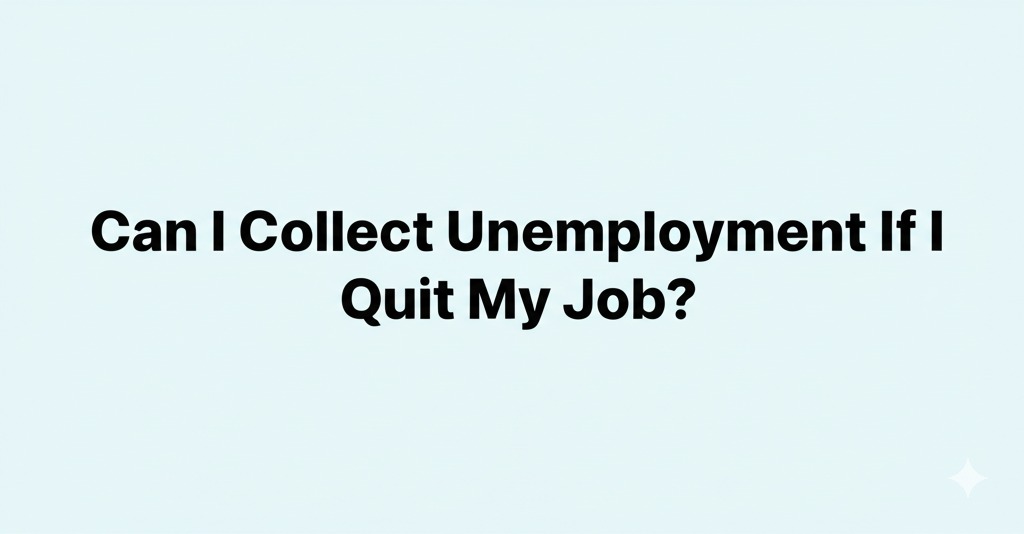
Thinking of leaving your job but worried about losing unemployment benefits? You’re not alone. This is one of the most common questions job seekers ask when considering a career change, a toxic work environment, or a need to prioritize personal health.
While quitting your job usually disqualifies you from collecting unemployment, there are important exceptions and legal nuances that could work in your favor. In this article, we’ll break down the rules, explore when you’re eligible, and guide you on what to do next.
Understanding Unemployment Benefits
Unemployment benefits are temporary payments provided to eligible workers who lose their job through no fault of their own. These benefits are managed by individual state programs and are funded through employer-paid taxes.
Basic Eligibility Requirements
To qualify for unemployment, most states require that you:
- Have worked a certain amount of time (known as a “base period”)
- Are unemployed through no fault of your own
- Are actively seeking new employment
- Are physically able and available to work
So, where does quitting fit in?
Can You Get Unemployment If You Quit?
In most cases, voluntarily quitting your job disqualifies you from unemployment benefits. However, there are exceptions where leaving your job is considered with good cause—and these can make you eligible.
What Is “Good Cause” for Quitting?
Each state has its own definition of “good cause,” but common acceptable reasons include:
1. Hostile or Unsafe Work Environment
If your job exposes you to harassment, discrimination, or unsafe conditions and your employer fails to take action after you report it, you may be justified in quitting.
2. Medical Reasons
If a health condition or disability makes it impossible to continue working, and your employer cannot make reasonable accommodations, this may qualify as good cause.
3. Family Emergencies or Responsibilities
Leaving a job to care for a sick family member or due to domestic violence may also be considered valid reasons in many states.
4. Significant Change in Employment Terms
If your employer suddenly reduces your hours, cuts pay significantly, or changes your job duties drastically, it may be deemed a constructive discharge, making you eligible.
How to Improve Your Chances of Qualifying
Even if you quit with good cause, you’ll likely need to prove it. Here’s how you can strengthen your case:
1. Document Everything
Keep detailed records of:
- Emails or messages related to your complaint
- Medical notes from your doctor
- Formal complaints or HR reports
2. Show You Tried to Resolve the Issue
States often require that you attempt to resolve the problem with your employer before quitting. This could mean filing a formal complaint or requesting accommodations.
3. Apply Promptly
Once you quit, apply for unemployment right away. Some states have strict deadlines.
State-by-State Differences
Unemployment benefits are governed at the state level, so rules vary. Some states are more lenient about what qualifies as good cause. For example:
- California allows quitting due to child care issues or following a spouse’s job relocation.
- New York may approve benefits if your job negatively affects your mental health.
- Texas tends to be stricter and requires very specific conditions.
Tip: Visit your state’s unemployment office website or contact them directly to get the most accurate information.
What Happens After You Apply?
After you file a claim:
- The state agency will review your application.
- They may contact your employer for their side of the story.
- You might be asked to participate in a phone interview.
If your claim is approved, you’ll begin receiving weekly benefit payments, often along with requirements to report job search activities.
What If Your Claim Is Denied?
Don’t panic—you can appeal. Most states allow you to:
- File an appeal within a specific time frame (usually 10-30 days)
- Submit additional documentation
- Attend a hearing to present your case
Final Thoughts
So, can you collect unemployment if you quit your job? The answer is: it depends.
While quitting typically makes you ineligible, there are several exceptions where benefits may still be available—especially if you can show good cause supported by documentation.

Andre Cuevas provides career insights, job search strategies, and professional advice to help individuals navigate the job market and achieve their career goals.





